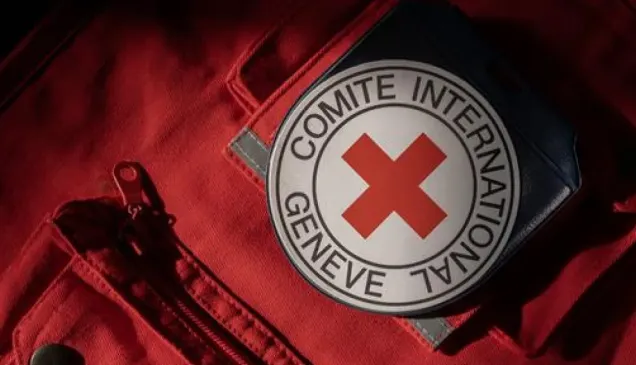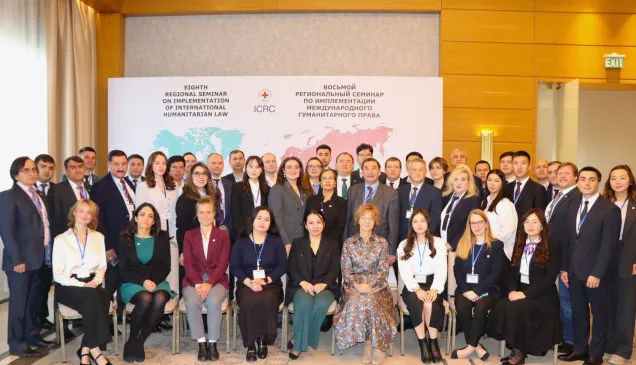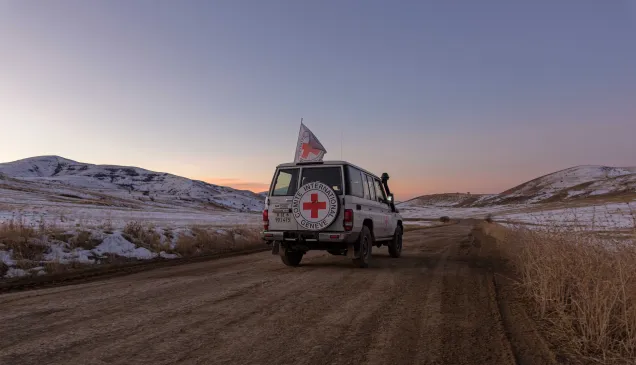Nagorno-Karabakh conflict: Uprooted yet again, this time in the middle of a pandemic
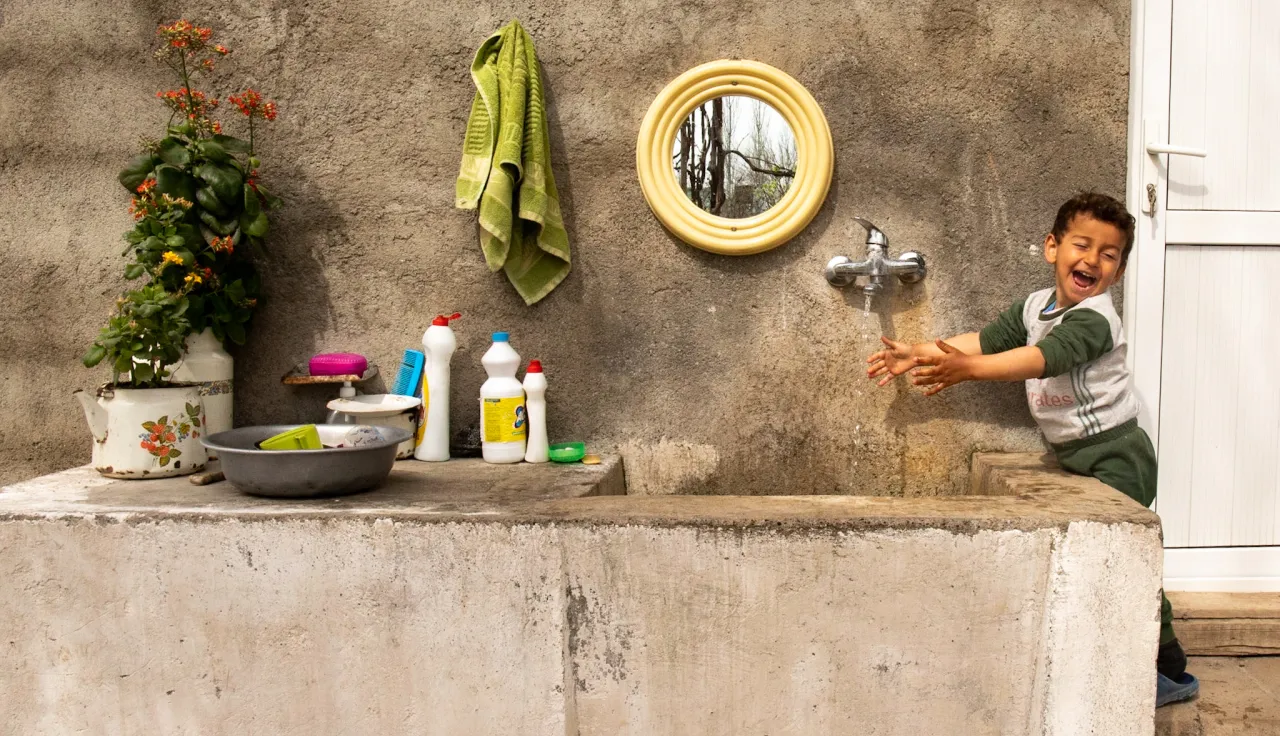
For decades, the Nagorno-Karabakh conflict has significantly impacted the livelihood of people living in conflict-affected communities. The year 2020 was especially hard for them – first, due to the COVID-19 pandemic, and then, because of the escalation in conflict during autumn that further worsened the situation. To help people meet their urgent needs and expenses, the International Committee of the Red Cross (ICRC) provided them with cash assistance. More than 23,000 households benefited from the programme, helping many to cover their basic needs during the tough period as they fled their homes for safer communities.
Calling a classroom their home
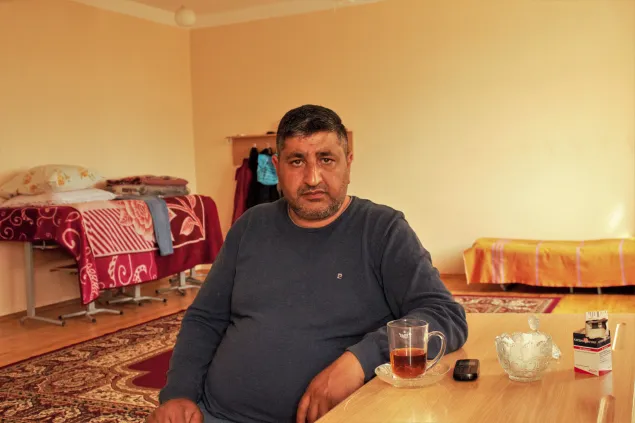
During the hostilities in early 1990s, Ilgar and his family had to leave their home in Kalbajar, seeking refuge in a school building. Having adapted to their life and home in a classroom, the family was again uprooted in 2020 during the escalation, forcing Ilgar, his wife and their daughter to flee for safety to Barda district.
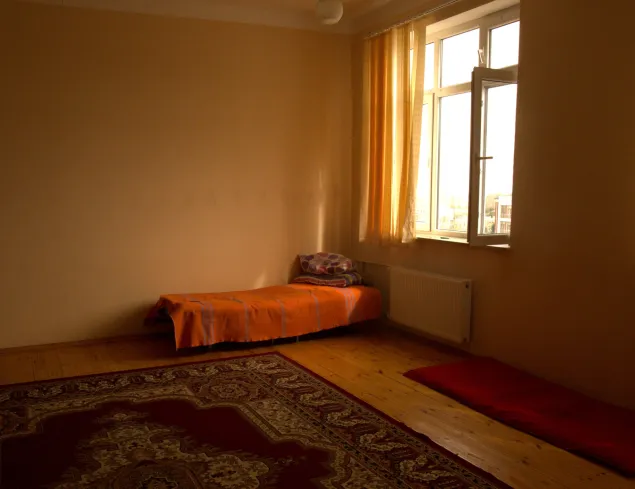
During this particularly hard time, the ICRC's cash assistance programme became a source of comfort for Ilgar and many others like him.
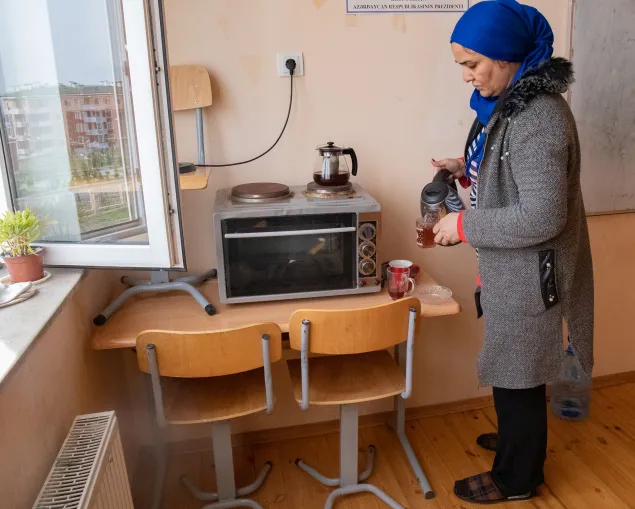
Ilgar’s wife in the classroom that the family calls home
"We were scared because of the devastation. To top it all, there was a pandemic. I lost my job when we fled and couldn't even afford to buy my medicine. As a result, my health was deteriorating. So, the cash aid was very timely for us," says Ilgar.
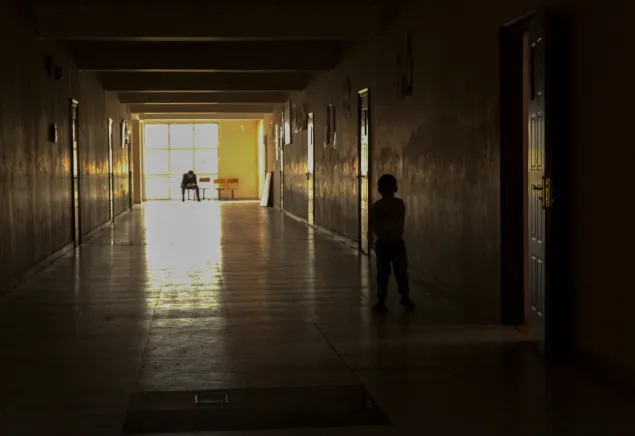
A boy in the corridor of a school, where some families have found temporary refuge after being forced to flee their homes during the active phase of the conflict.
A mother's heartbreaking loss
As grandparents of two little boys, this elderly couple in Agdam district of Azerbaijan is doing the best possible to keep things positive and comfortable for them. Pre-pandemic, the entire Ismayilov family was living together and was happy. But then COVID-19 claimed the life of the little ones' father, who was the family's breadwinner, while they were living in a temporary settlement due to the escalation in hostilities.
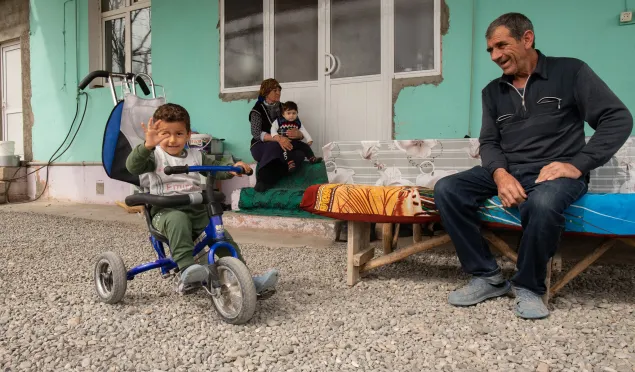
"Those were very hard times. We not only lost our son, but also our only source of income," Surkhay, the family's eldest member says.
As their community was heavily affected by the Nagorno-Karabakh conflict, the elderly couple decided to leave their home in search of safety. The family returned when the fighting had stopped.
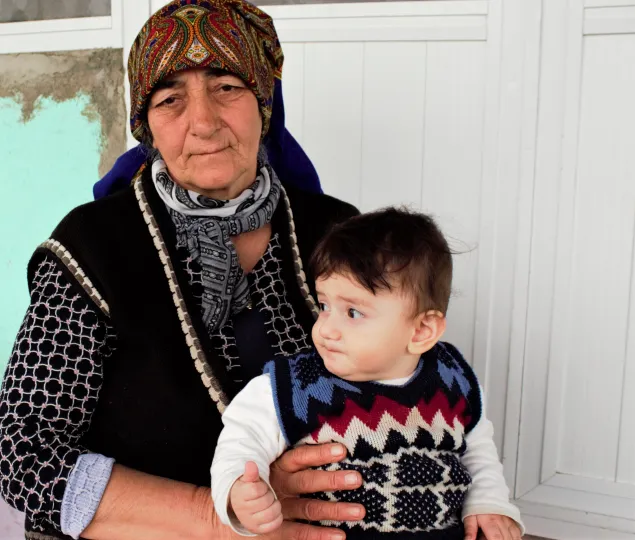
Having lost her son to COVID-19, a heartbroken Ismayilova holds her younger grandson close to her, aware that the kids’ life will never be the same again.
The couple's older grandson, who is only four, wants to be a photographer when he grows up. Still too young to grasp the magnitude of what has happened over the past few months, he delights everyone with his heartwarming laughter and innocence.
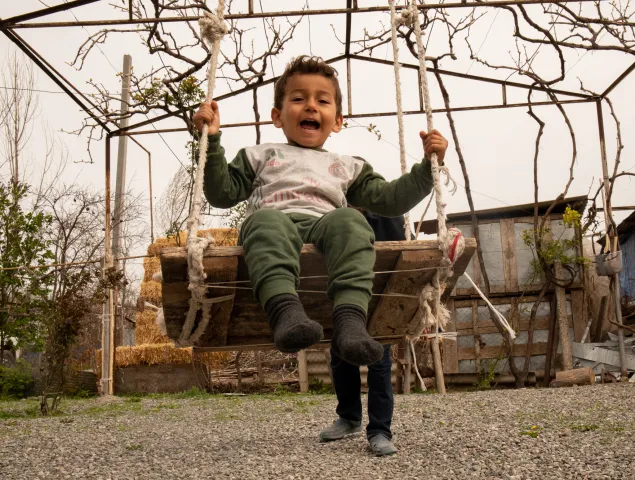
Helping his village get better access to water
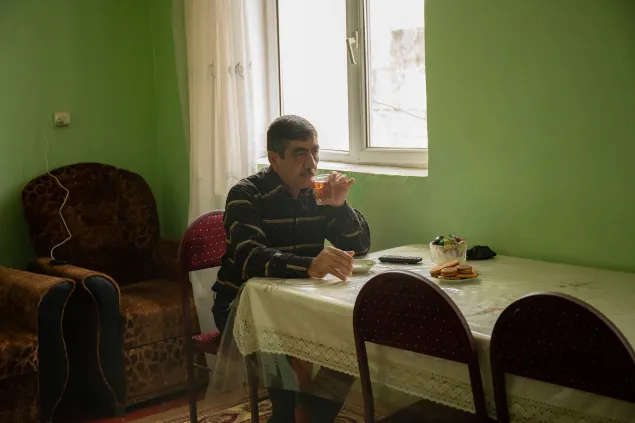
During the COVID-19 pandemic, having access to clean drinking water became even more important in the region. Humbat, who works at the Water Utility Department of Agdam district, has been trying to help his fellow villages in this regard. "We mainly take care of restoring the water pipes and artesian wells that were damaged during the hostilities so that people have enough water to meet their daily needs," he says.
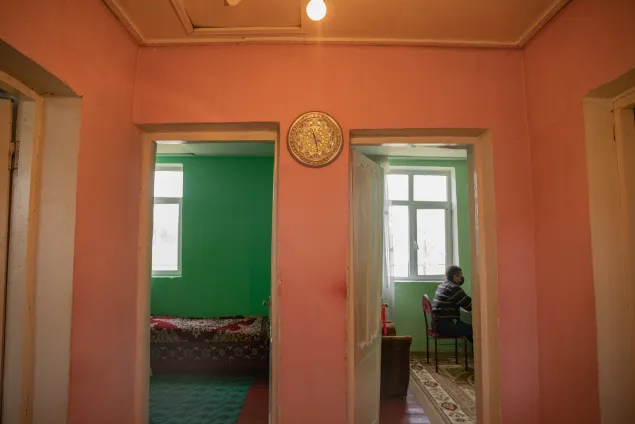
Humbat, who has always tried to help others, himself needed support during the escalation in conflict.
He and his family had to leave their home and move to a neighbouring community that was farther from hostilities. "We heard that the ICRC was registering people affected by hostilities at the local school. The three of us got ourselves registered for the support," Humbat adds.
The traumatic memories
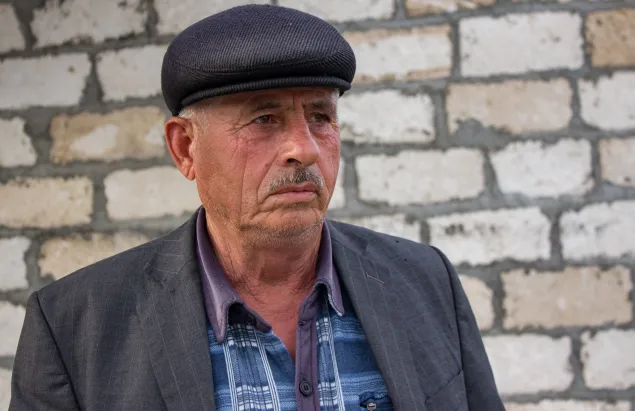
"There was a sudden and terrible explosion a few meters away and the next thing I knew, there were bodies scattered all around me. I had shrapnel wounds and barely survived myself," recalls Salim, a resident of Terter district, while he waits for the bus at the bus station in Barda city, Azerbaijan.
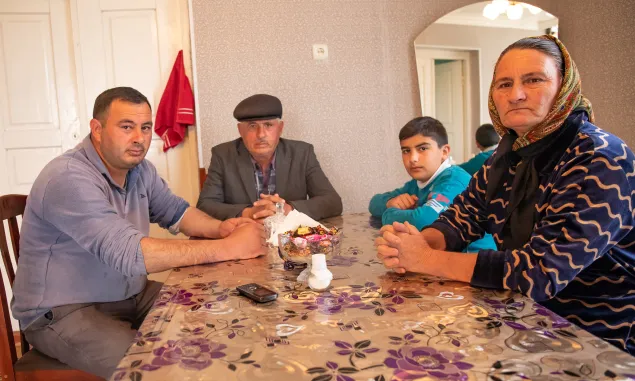
Salim and his family got separated when the autumn escalation occurred and were reunited only when the fighting ceased. Residing in an area that was affected by the conflict, the family went through tough times after the incident.
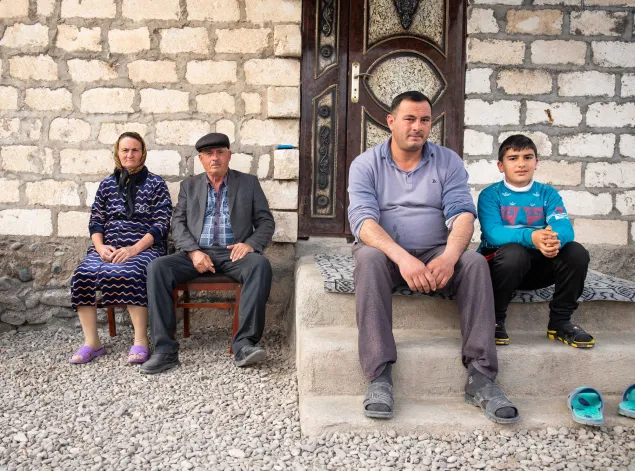
"Our grandchild suffered a lot psychologically and it took him some time to get normal. The same is true for Salim," says Guldana, Salim's wife. Even though the family saw some terrible times, Guldana is grateful that her family members are safe and sound.

